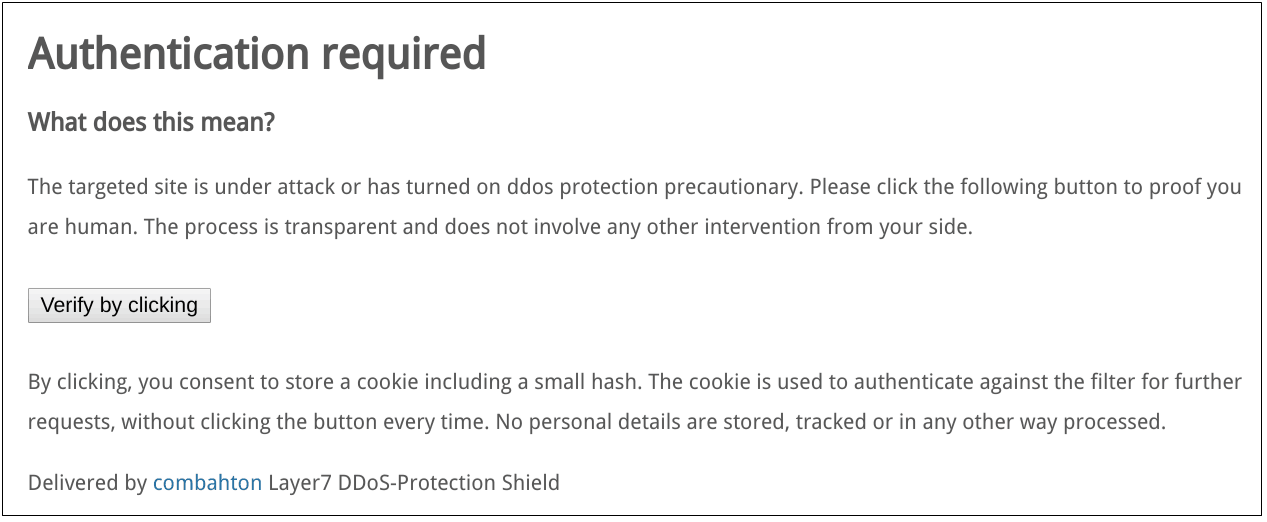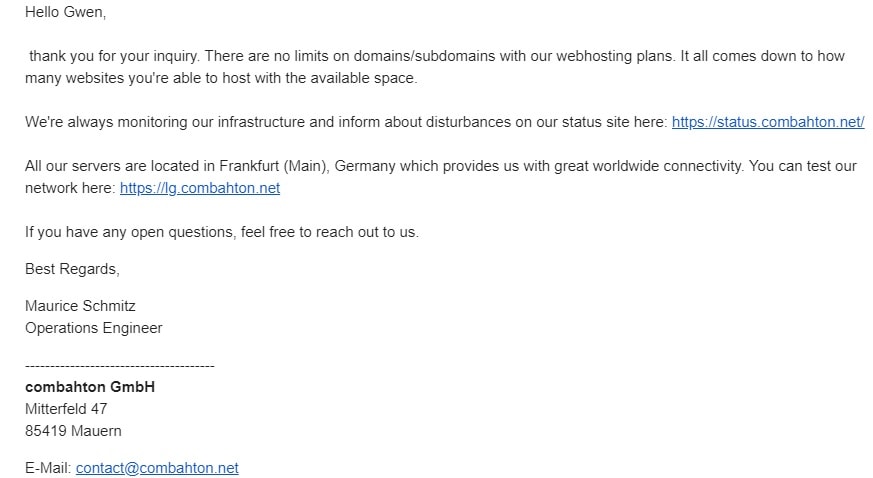fastpipe.io is a hosting brand of German infrastructure-as-a-service (IaaS) provider Combahton GmbH, which runs its own completely redundant server and network infrastructure.
The German- and English-language fastpipe.io website sells web hosting, cloud servers, dedicated servers, domain registration, DDoS protection, monitoring-as-a-service, and other security, server hosting, and data center services.
Features and Ease of Use
This host offers five shared web hosting plans, five SSD cloud servers, five HDD cloud servers, and six dedicated servers. The five shared hosting plans provide you with:
- Plesk control panel
- 5 GB to 50 GB storage
- Unlimited traffic
- 2 to 30 MySQL databases
- 2 to 30 FTP accounts
- PHP 7 and Python support
- SSH access (on some plans)
- Let’s Encrypt SSL
- Free setup
The full daily data backups help to keep your data safe, and the DDoS protection protects you against distributed denial of service attacks. This can be both a blessing and a curse since I was met with this offputting message when I first visited the vendor’s own website:

Our available dedicated servers offer RAID 1 or RAID 10 storage to ensure data redundancy, protecting against disk data disasters. We operate multiple cloud servers in a failsafe cluster, guaranteeing up to 100% availability. With our monitoring-as-a-service (MaaS), you can easily keep track of the performance of your servers and services.
Pricing and Support
The shared hosting plans are a bit pricey, but it’s worth keeping in mind that you’re getting unlimited traffic and hosted domains plus DDoS protection. You can pay for plans monthly in euros by bank transfer, PayPal, SEPA direct debit, Paysafecard, or Bitcoin. You have 14 days to withdraw from your contract, which is probably just the statutory “cooling off” period.
You can summon customer support by submitting a support ticket, sending an email, filling out an online contact form, or calling a 24/7 emergency hotline. My pre-sales exploratory email was answered in a day:

Self-support resources include various methods for monitoring server status (such as SmokePing and Looking Glass), a blog, and a knowledge base.










